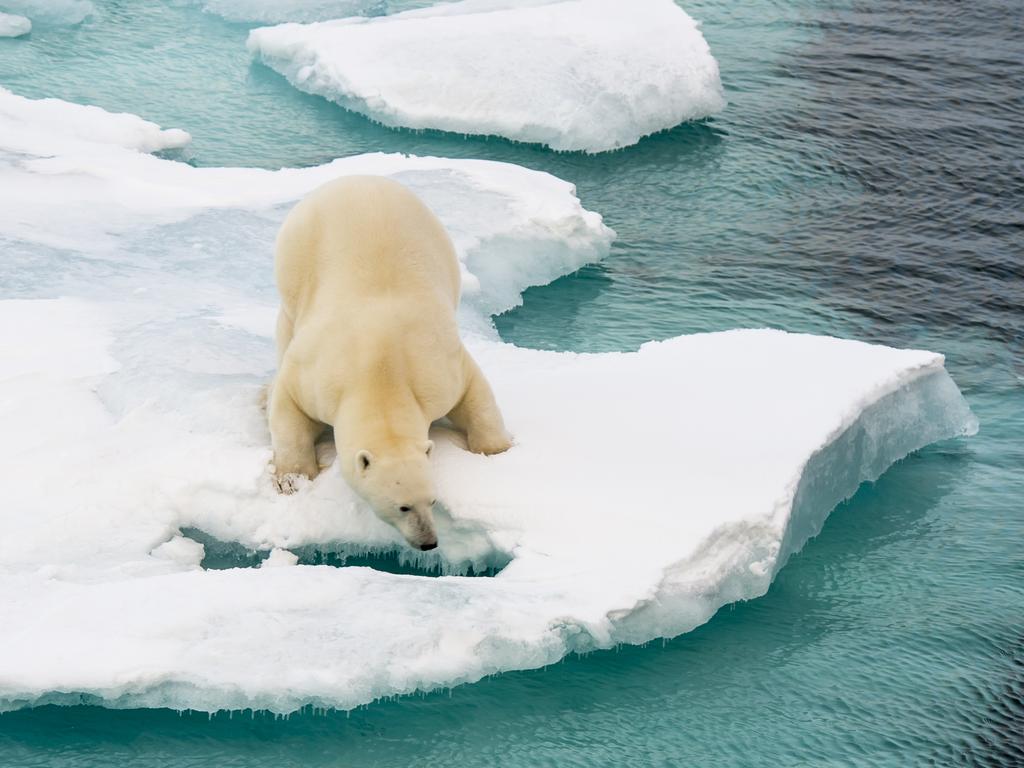New research finds Earth’s ‘vital signs’ worsened during pandemic
Troubling new research into the planet’s 31 “vital signs” shows, contrary to what many expected, they worsened during the pandemic.
The pandemic has fundamentally changed the way people all around the world live their lives.
They move around less. They work from home more. When they do venture out, their faces are hidden behind masks.
Entire cities have been locked down as coronavirus evolved into new, more highly transmissible strains.
You could be forgiven for thinking the lack of movement would have a positive impact on Earth’s “vital signs” – the indicators scientists use to measure human impact on the environment. But you would be wrong.
New research, published on Wednesday in the scientific journal BioScience, shows the world is still heading in the wrong direction.
The research is a continuation of work carried out in 2019 that foretold of “untold suffering” and declared a climate emergency. It was signed by more than 11,000 scientists from 153 countries.
RELATED: Australia avoids ‘kick in teeth’ over reef

RELATED: Why ‘Black Summer’ will happen again
The researchers from the University of Exeter, University of Grenoble Alps, Oregon State University, the Woodwell Climate Research Centre, Potsdam Institute for Climate Impact Research and the University of Sydney said climate-related disasters have surged since 2019. Think flooding in South America and Southeast Asia, wildfires in Australia and in the United States and cyclones in Africa and the Pacific.
The vital signs that are impacting that trend include a sharp rise in the number of ruminant livestock which is a significant contributor to methane gas levels in the atmosphere.
“For the first time, world ruminant livestock numbers soared past 4 billion, which represents much more mass than all humans and wild mammals combined,” they wrote.
“Future declines in meat consumption and production will probably not happen until there is a general shift to plant-based diets or increases in the use of meat analogs.”
They found the pandemic had no positive change on our rainforests.
“The Brazilian Amazon annual forest loss rate increased in 2019 and 2020, reaching a 12-year high of 1.11 million hectares destroyed,” they wrote.

RELATED: Country erupts over ‘ute tax’
Greenhouse gases, carbon dioxide, methane and nitrous oxide “all set new year-to-date records for atmospheric concentrations in both 2020 and 2021”, the researchers wrote.
What about Earth’s temperature? Well, that is going up, too.
“In April 2021, carbon dioxide concentration reached 416 parts per million, the highest monthly global average concentration ever recorded. The year 2020 was the second hottest year on record, and all five of the hottest years on record have occurred since 2015.”
That means bad news for another of Earth’s vital signs – melting sea ice.
Researchers wrote: “Greenland and Antarctica recently showed new year-to-date all-time record low levels of ice mass.
“Glaciers are melting much faster than previously believed; they are losing 31 per cent more snow and ice per year than they did just 15 years ago.”
Ocean changes are also trending in the wrong direction.
“Both ocean heat content and sea level set new records,” researchers wrote.
“Ocean pH reached its second lowest year-to-date average value on record, just behind 2012.
“This is troubling given that coral resilience to ocean acidification is likely reduced by thermal stress and more than 500 million people depend on coral reefs for food, tourism or tropical storm surge protection.”

RELATED: Ferocious global wave as Delta cases surge
Scientists in 2019 described a moral obligation to “clearly warn humanity of any catastrophic threat”.
In Wednesday’s research, they wrote: “There is mounting evidence that we are nearing or have already crossed tipping points associated with critical parts of the Earth system, including the West Antarctic and Greenland ice sheets, warm-water coral reefs and the Amazon rainforest.
“Given these alarming developments, we need short, frequent and easily accessible updates on the climate emergency.”
They wrote that positive effects of the Covid-19 pandemic on some climate-related human activities were “short-lived”.
“A major lesson from Covid-19 is that even colossally decreased transportation and consumption are not nearly enough and that, instead, transformational system changes are required, and they must rise above politics.
“On the basis of recent trends in planetary vital signs, we reaffirm the climate emergency declaration and again call for transformative change, which is needed now more than ever to protect life on Earth and remain within as many planetary boundaries as possible.
“The speed of change is essential, and new climate policies should be part of Covid-19 recovery plans. We must now join together as a global community with a shared sense of urgency, co-operation and equity.”




